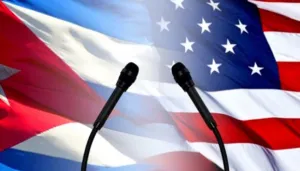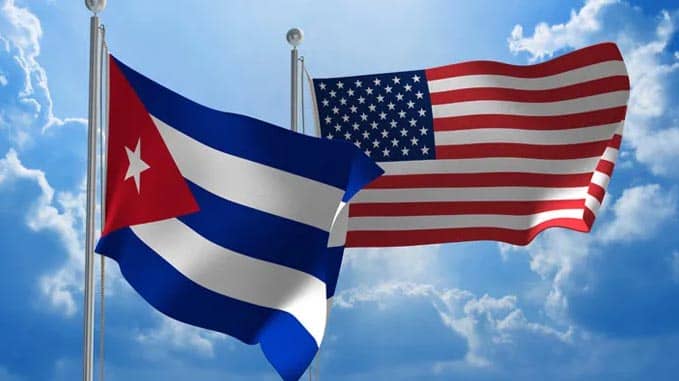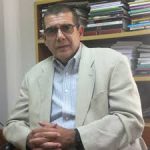Cuba – US: The Differences between Knowledge and Ignorance

The twentieth edition of the series of dialogues on Cuba in U.S. foreign policy, an exercise organized by the Center for International Policy Research (CIPI) at the headquarters of the Raúl Roa Higher Institute of International Relations since the dawn of the 21st century, has just concluded. On this occasion, some of its initiators participated once again. We must thank them and those who are no longer with us for their willingness, perseverance, interest and even disagreements.
On this occasion, for the first time, all the panels were broadcast in real time on CIPI’s YouTube channel, where the videos of the presentations are still available. A first interesting fact: during the three days of the event (December 14, 15 and 16), 1,273 people connected to the sessions, a total that will grow in the following days.
However, the curious thing is that more than half of these connections (662) took place at the very moment when a special inaugural speech by a high-ranking official of the Cuban Foreign Ministry was taking place. The figures indicate that it is of interest to listen to the official voice of Cuba; that what is raised by it is immediately consumed and transcends in the political plane.
Since the very morning of Wednesday, December 14, there have been comments in the press and on social networks, especially from those who appreciate that any probable return to stable official communication between the two countries could mean the end of the hate industry. This is a good sign.
But this meeting was again an academic space to listen to different proposals on common issues, with the participation also for the first time of experts from third countries, at a time when those who oppose a bilateral relationship of cooperation on certain issues try to deny the scientific evidence and build curricula to supposed intellectuals, who never were, to try to confront recognized professors and authors in foreign universities and research centers.
On issues such as the policy of the current administration of Joe Biden towards Cuba and its prospects for 2023-2024, divergent and opposing voices were heard, but an attempt was made to build a single vision, based on what each one could contribute. Perhaps the common points were basically three:
- a) The regression in the bilateral relationship ordered by the administration of Donald Trump and respected by Biden, in his first two years in office, does not respond to the national interest of the United States.
- b) What was discussed and negotiated between 2015 and 2017, including at some points in 2018, constitutes a solid foundation for any kind of sustainable relationship between the two countries in the future.
- c) It has been a mistake for the Biden Administration to have accepted the reading that the internal situation in Cuba, as a result of the coexistence of the extreme blockade and the pandemic, would end in a social implosion on the Island.
Three panels were devoted to issues in which there has been, or is, some kind of bilateral cooperation. The divisions were established between the official and unofficial levels and, within the former, a separate space for the eight spheres comprising law enforcement.
Six high-level experts from both countries presented their experiences and visions on the environment alone and the whole web of new concepts such as mitigation, resilience, low-carbon development, sustainable technologies, anthropogenic climate change and renewable energies. And here again, common points:
1- Despite all their material limitations, coral reefs, wetlands and other areas of environmental interest are much better protected in Cuba than in the US.
2- Cuba’s work in this field, following national interest priorities, has a favorable balance for the southern United States, particularly in Louisiana, Alabama, Florida and Georgia.
3- Non-governmental actors in both nations have a major role to play in building bridges and educating citizens, entrepreneurs and decision-makers that almost any new economic initiative we propose will have an impact on our environment.
When it comes to other areas of exchange, the respective universities, research institutes in general and those associated with health in particular, undoubtedly offer the most fertile ground. Science cannot be hindered by polarization, hatred or lies.
At times when they wanted to cause a total asphyxiation, Cuba breathed through its science and its achievements. Even today, when they have been known and debated in all latitudes, they continue to cause astonishment. This happens equally in Los Angeles, Minneapolis, Chicago or Detroit.
When almost everything in the bilateral exchange between the United States and Cuba was frozen, scientists continued talking, complementing each other, warning of dangers and saving lives jointly from their emails, specialized publications, or simply by WhatsApp. The spectrum is much broader and ranges from agriculture to combating oil spills in the Caribbean Sea.
At this point, when the volume of information seemed impossible to process, foreign visitors had the opportunity to learn about the unique experience of the Foundation of the University of Havana, the Havana Technology Park and the company CETA SA Ispjae interface, which, in two years, have accumulated significant results in the application of science, technology and innovation. Even the Cubans who lived with them were surprised.
Particular mention should be made of the shared considerations regarding judicial cooperation, the fight against illegal emigration and human trafficking, terrorism, cybercrime, the fight against drug trafficking, and the coast guard-border guard relationship.
The number of communications from the Cuban side that have remained unanswered by the U.S. authorities since 2018, despite the fact that they dealt with the investigation of facts that, ultimately, can and do affect the national security of the United States, is a cause for reflection.
Just one example will suffice: Cuban specialized agencies have issued alerts in these years against 57 citizens of Cuban origin residing in the United States, for crimes associated with drug trafficking. Five of them are red alerts, reserved for the most dangerous criminals. There is not even an acknowledgment of receipt of these communications from the U.S. side.
Although the organizers of the event tried again and again to confirm the attendance of U.S. experts in these matters, it was impossible to count on their presence. However, we were able to share and quote important texts published by some of them in the recent past on the significance of the constructive nature of this bilateral cooperation.
The intervention of the Colombian expert who agreed to be part of this panel was as clear as transparent to conclude that it is not in the interest of the United States, nor in the interest of America as a whole, to include Cuba in the list of countries that supposedly sponsor terrorism. This practice should be immediately disregarded and the opportunistic and outdated action of the former U.S. Secretary of State should be reversed.
The panel proposed and organized by the National Coalition of Concerned Legal Professionals deserves a special mention in the annals of these events, and in this year’s celebration in particular. Together, they provided a first-hand view, based on their own experience, of the social effects of covid-19 on the U.S. population, but not from a medical or healthcare point of view, which has been disastrous in itself. They referred to the impact on the availability of housing, the impossibility of paying rent, the high level of deaths among the prison population, and the deepening of social differences.
These professionals, who work in low-income communities in the United States, had the opportunity to visit the Quisicuaba project in Centro Habana.
After listening to the explanation of their talented leaders, they asked many questions that were answered at length. One of them asked for the floor to narrate the harsh reality of social work in the United States and how, after much effort in working with a family or an individual, after protecting them from an improper legal action, an unjustified dismissal or an unnecessary fine, they are defeated by an overdose or by violence in the streets. This man, hardened by his own experiences, was unable to finish his speech due to overwhelming emotion.
Another part of the event was devoted to a joint analysis of the significance of the mid-term elections in the United States and their possible effects on the Latin American and Caribbean region.
Beyond statistics, winners, losers and future candidates, it became evident the multiplicity of new factors at work in the U.S. political reality, the growing complexity in terms of making forecasts for such a complex system of actors, with chaotic manifestations many times. Faced with this panorama, there will always be the option of trying to articulate a relationship with those actors and in those matters where there is a full understanding of the usefulness of the link, as well as knowing the uniqueness and differentiated capacities of federal, state and local authorities.
The last panel, which was enough to cover the time of the entire event, was dedicated to Cubans living in the United States, their points of view regarding their country of origin and their real capacity, or not, to influence the bilateral relationship, in one sense or another.
Here again, the starting point was scientific data, not perceptions or pre-established schemes. Regardless of the different visions of the country, of different ideas about what matters may or may not be at the center of a constructive future relationship between Cuba and the United States, we arrived at a more or less consensual reflection: despite the political polarization of recent years in the United States, despite all the funding that has been invested in social networks and negative campaigns, there is a significant percentage of Cubans there who defend the so-called family agenda and who are willing to support a return to the logic that prevailed in the official bilateral relationship between 2015 and 2016, if there were the political will to do so at the highest level in Washington.
This summary may perhaps be the main thread of the event and not the synthesis of what was said at the event, which can be pondered without haste in each of the interventions available on the aforementioned platform. Everyone left the event with their own opinions, their preliminary conclusions, and their immediate plans. Most of us agreed that we should not wait until December 2023 for the next academic exchange to make progress.
A conclusion was drawn in the atmosphere of the exchange. Those in favor or against a relationship as rational as possible between the United States and Cuba are divided by political, ideological, convenience or personal interest, ethical and many other considerations.
But to these must be added the differences between knowledge and ignorance, since it is less and less possible for a rational being to explain coherently that the current U.S. policy towards Cuba makes sense, fulfills the objectives for which it was designed, or makes any contribution to human betterment.
These lines do not pretend to be a unique interpretation of what happened during the event. They are a provocation for everyone to consult the available videos and to read the memories of the event, which will be published soon.
Available at https://resumen-english.org/2022/12/cuba-us-the-differences-between-knowledge-and-ignorance/#more-22243 Translation by Resumen Latinoamericano - US



Déjanos tu comentario